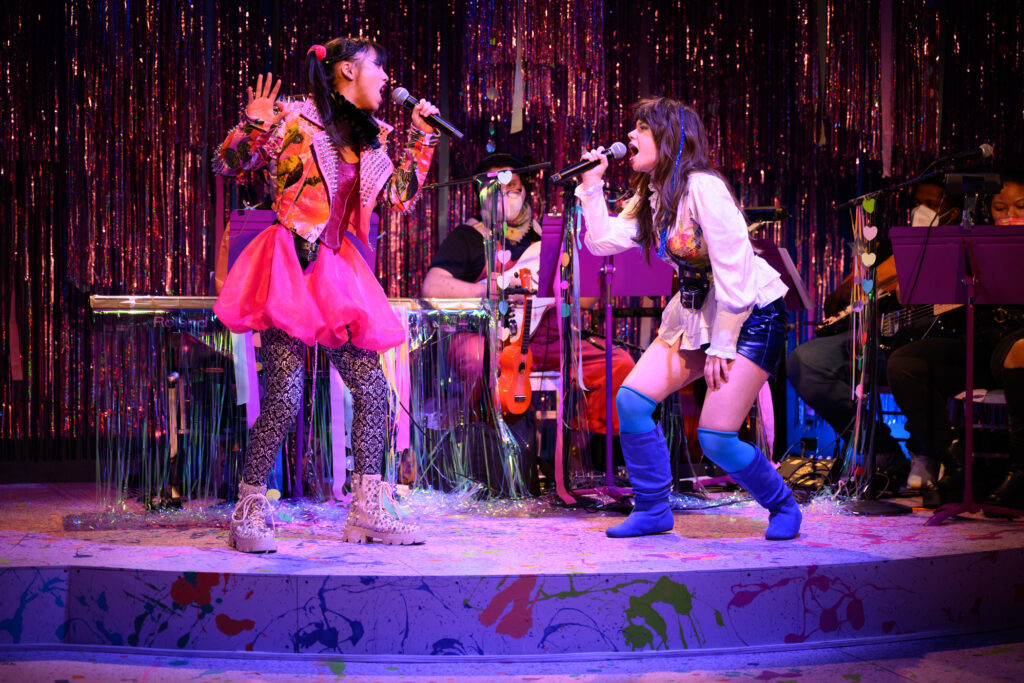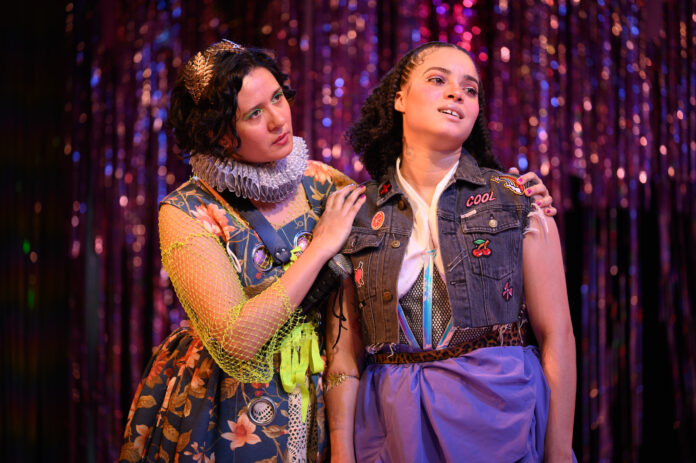What do Elizabethan English drama, 1980s pop music and queer joy have in common? To find out, you’ll have to see “Head Over Heels” at Theatre Horizon in Norristown. After a groundbreaking run on Broadway in 2018 — which featured the first openly transgender performer in a leading role in the history of the industry — this adaptation of Sir Philip Sidney’s “Arcadia,” set to the music of The Go-Gos, is beginning to pop up in regional theaters across the country. Thomas Choinacky, a well-known queer performer, appears in the production as Dametas, the right hand of Basilius, the king of Arcadia. Choinacky spoke to PGN recently about their history with The Go-Gos and the celebration of queerness on stage. Some responses have been condensed and lightly edited.
Can you tell me a little bit about the story of “Head Over Heels”?
Sure. One side of the story is that “Head Over Heels” is a jukebox musical that is pulling songs from the pop-rock band The Go-Gos. The musical is also based on a sixteenth-century prose poem. The plot itself is about an oracle who predicts the possible end of a kingdom’s “beat,” which the kingdom really relies on. So that’s pulling from the famous Go-Gos song “We Got the Beat.” Their understanding of identity and culture is really based on the concept of the beat. The oracle says that the king holds too much power, so they predict four prophecies that, if they come true, mean the beat will die out. It’s the kingdom really reckoning with what that will mean. What is our relationship to power and our relationship to queerness, since many of the characters are queer.
It sounds very intentional in the way that it includes queer narratives in a story that takes place many centuries ago.
There’s been a lot of dramaturgy in the production about the relationship of mashing up these very different moments in our history. We’re jumping around a lot in time here. I haven’t read the full text of “Arcadia,” but questions about our relationship to power very much translate to today — like how queer stories are really reckoning with the patriarchal systems that are still in place.
What part do you play in the show?
I play Dametas, who’s the right-hand man of the king. The king is very bulldozy, which you’ll see in the show. His vision is what is going to happen, and many characters in the show, including mine, are challenged by this. We see moments that are opportunities for change, like when the king asks for my character’s opinion. But whatever advice I’m giving, he doesn’t listen. Still, the show is very lighthearted in how it’s telling its story.
Did you have any connection to the music of The Go-Gos when you signed on for this project?
I have one of their albums that I’ve had for years. I previously worked with the director of this production, Rebecca Wright. When I was auditioning for this show, I talked about this record, “Beauty and the Beat,” and that I’ve had that for so long. I think it was a record that my sister gave to me. I’ve been a fan of their music for so long. That album has such an iconic cover, because they’re an all female-identifying band in bathwear, with towels on their heads. They have such catchy songs, and the harmonies are so great.

I know a lot of your past work has involved dance and movement, and much of it has been self-devised. How do you prepare to shift into the mode of doing an ensemble musical?
This is the first musical I’ve done in a very long time. I do a lot of dance, so getting to dance in this show is my wheelhouse, and it feels great. It’s taken a little more rehearsal for me to nail the harmonies! Sanchel Brown is the choreographer here, and she is really awesome at making the world through movement, telling the story that way. There’s only so much you can tell with the words, and the songs move so quickly, so dance is important to tell the story too.
What do you hope people will take away from the show?
The broad one is the queer joy that comes from the show. There is ultimately such a welcoming communal environment that is built in the show that’s really powerful. To celebrate queer stories in the show is important. There is also the necessary shift in power that the story talks about, which I feel connects to the current moment.
“Head Over Heels” runs through March 12 at Theatre Horizon, 401 Dekalb St., Norristown. For tickets and information, visit theatrehorizon.org/.
